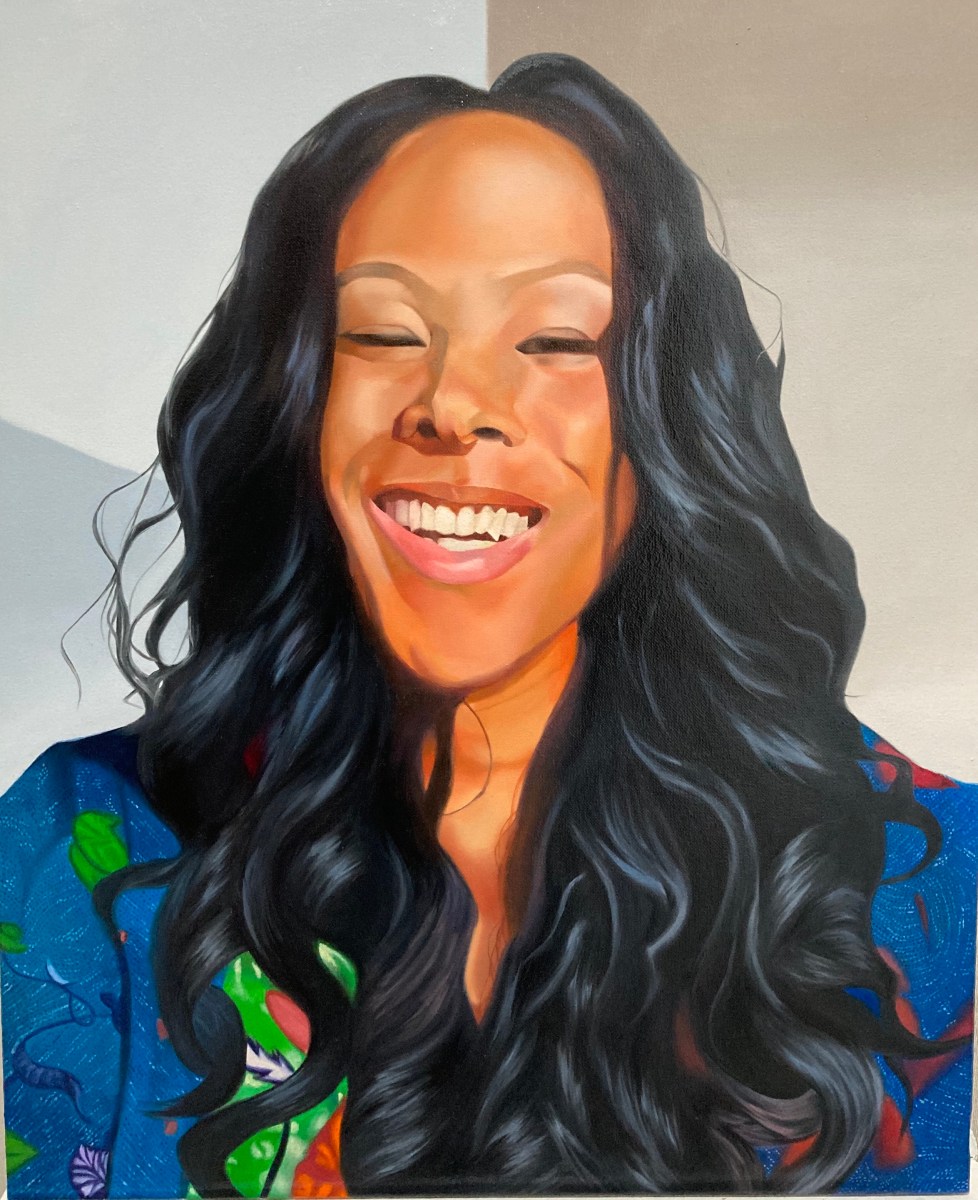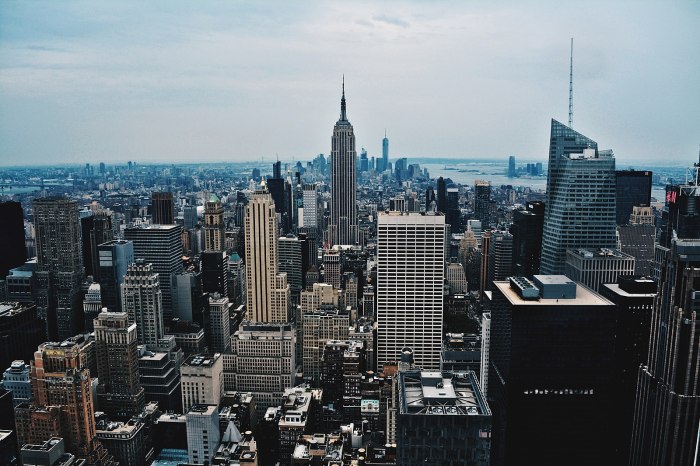Rahul Rai plays Mahmoud, one of two Iranian teenagers executed in Mashhad, Iran, in | MARC CARTWRIGHT/ HARAMIRAN.ORG
In this most fraught time in America — especially where immigrants are concerned — hearing as many disparate, seriously concerned voices as possible is critical. One such voice is playwright Jay Paul Deratany, whose “Haram! Iran!,” opening this Friday at TADA!, is based on a disturbing story out of Iran about two teenaged boys who went to trial in Mashhad in 2005 on charges of homosexual conduct and were executed. The cast includes Roberto Tolentino and Rahul Rai, as the boys, with Naama Potok, Sahar Bibiyan, Kal Mansoor, Colin Mulligan, Russell Jordan and Thamer Jendoubi, under the direction of Rick Leidenfrost-Wilson.
Jay Paul Deratany’s play tackles gay oppression in the Islamic Republic
DAVID NOH: What inspired you to write this play?
JAY PAUL DERATANY: I’ve been involved in human rights issues for a long time, whether it’s providing pro bono legal services to HIV/ AIDS patients early in the AIDS crisis or working at an LGBT homeless youth center. I’ve just felt it always my duty to help others where I can. I also read a lot about issues, and one day I was just perusing the Internet on one of the sites and I saw this article about these two boys. They were about 15 and were being prosecuted for being gay.
I saw this photo of these two boys crying, with nooses around their neck. I just started to cry, and thought what can any of us do about this? That’s when I started researching this and writing the story. By writing “Haram! Iran!,” I wanted to reach out to a community that has had less experience with gay people as a normal part of society.
DN: How has it been received by audiences and where has it played so far?
JPD: The audiences have seemed to really appreciate the work. When I’m in the audience, afterwards, people come up and thank me for writing the story. It opened in Chicago, and because an audience member there was on the board of Celebration Theater in LA, they asked if I would allow them to play it. It went to LA and then I thought, “Well, I guess that’s it.” Then about a year or two passed, and I got a call from a London playhouse and they wanted to do it.
DN: Have you gotten any kind of backlash from the Muslim community?
JPD: Not at all. I want to be very specific and say that this is not a play that is all anti-Muslim. In fact, hopefully when you attend, you will see that there are many references to the Quran. The Quran, like many books, is subject to interpretation, and there are many passages that celebrate love and do not condemn anyone. So really there is no reason for any backlash. In fact, I had one gentleman come to me afterward and tell me that he was a strict Muslim and appreciated the way I had included passages of the Quran in the play.
The play is critical of the hardline governments of Iran and other countries that misinterpret the Quran for their own purposes. The Quran does not condone the killing of gay youth. There is a lot of love and compassion in the Quran.
DN: I come from a conservative Korean background in Hawaii and know something about having to be closeted and other compromises. What was your own coming out story like, with regard to family and friends? When did you first know you were gay?
JPD: I was born in the US, and my father is of Syrian background. It was hard growing up, and that is why the story of Ayaz and Mahmoud could be a story of any kids, including those in the US. I didn’t come out until I was in my late 20s, and in fact I hid it for a while, claiming to be straight and was even engaged to be married. I wanted to fit in so badly. I remember I used to pray to God to “take away this sin” but now I thank God I am who I am. Once I accepted myself, life was better and I’ve never looked back.
We are a minority and it is easier to be part of the majority and to be straight. So, although everyone likes to say it is much easier for kids now, we have to appreciate that it is not easy and we still have a long way to go. Besides, in today’s climate, with this new government, we are seeing LGBT rights being rolled back, so we still have to fight for our rights.
Robert Tolentino plays Ayaz, the other teen executed. | HARAMIRAN.ORG
DN: What was your education? You are a real hyphenate, being both an active lawyer and playwright.
JPD: When I was a kid, I wanted only to be an actor and writer, but then life happens, and when I was going to college everyone either went for the MBA or law degree, and I chose law. I continue to practice law and work frequently on human rights cases, but my passion is writing.
I am married to a wonderful man named Curt Smith, and we live in Chicago and also part time in LA.
DN: I recently interviewed playwright Paula Vogel, the first out lesbian to win the Pulitzer, and she said that now, more than ever, we all need to be proud, bold, and outspoken about our love. How do you feel about that, and what is your perspective on being Muslim and Syrian in America?
JPD: I’m not Muslim. I was baptized Syrian Orthodox. It might surprise many readers, but it is very hard to put the Arab people in a box. First, there are over 10 religions that are part of the Arab community. There are Arab Christians, two major sects of the Muslim faith, there are even Arab Jews, so we are not all Muslim. But, as part of the Arab culture growing up in America, I can say that it was really taboo to be gay. It went against the Church and against the rather machismo image that a lot of Arab men have of what a man should be.
As to love, we just have to be who we are. I don’t think we have to scream out, “I’m gay,” but by holding our partner’s hand and walking down a street, perhaps in a neighborhood where that is not typical, we are making a strong statement. We walk down that street holding hands quietly, and people look. They might at first be shocked, but then they might say to themselves, “They look normal. I guess they should be allowed to love who they want.” That is my definition of being bold. Everyone has their own.
DN: What are common misperceptions of your culture that you’ve encountered?
JPD: That’s an easy one: Arabs or Arab Americans are all terrorists. Or that we are angry men. Not true at all. Arab people are very loving. If you walk by their home, they will say, “Come in and have dinner.” They open their homes and their hearts to people. It is really just a very few extremists that have these radical views.
DN: Talk about your director and cast. How did you find your actors?
JPD: I wish I could take credit for the director but it was our terrific producer, Adam Weinstock, who found Rick [Leidenfrost-Wilson]. But I will say that at a reading of the play several months ago, Rick had approached me and said immediately that he would love to direct this. I did then talk to Adam, who at the time was casting a wide net, and suggested that Rick’s enthusiasm should carry a lot of weight. Adam agreed, and now we have this fantastic director.
As far as casting, it was all Rick and Adam. I will just be meeting them when I see the play! We have, however, been emailing and they have asked all sorts of questions so I’m excited to meet them all.
DN: Was it hard getting this produced for any reason?
JPD: Not really. I think the subject matter is timely and there is a real thirst in white Americans to learn about Arab culture and vice-versa. It is time that we see the love in each other rather than the us versus them mentality that is so destructive.
DN: This is not your first play, is it?
JPD: I’ve written a few plays and screenplays, and one that I am particularly proud of is a musical I wrote called “The Transcivility of Albert Cashier,” which will open in Chicago in the fall of this year. It is a true story about a woman — maybe transgender — who dresses as a man and fights in the American Civil War, and lives as a man his whole life. Albert Cashier was an extraordinary human being, and I can’t wait for the world to hear his story.
DN: Finally, what do you hope your audience takes away from your play?
JPD: Love, I hope. Love endures, and that no matter what the world throws at us or what government — theirs or ours — that denigrates us, we have the right to love who we want to love. The GLAAD nomination we received in LA was a thrill and working with the folks at Celebration was truly wonderful. I can’t compare it to New York City because both are beautiful in different ways. Adam and Rick have been wonderful to me, and I am so thankful that this production is in their good hands.
HARAM! IRAN ! | TADA! Theater, 15 W. 28th St. | Mar. 3, 10 & 17 at 9 p.m.; Mar. 4, 11 & 18 at 7 p.m.; Mar. 5, 8, 12 & 19 at 2 p.m. | $20 at HaramIran.org



































